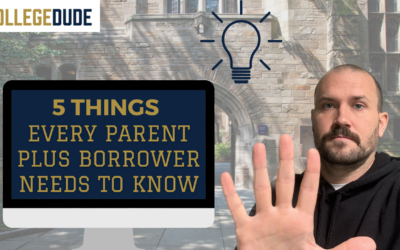What types of financial aid are available? When it comes down to brass tax, there are two ways to receive financial aid:
- Free money aka scholarships & grants (this money doesn’t need to be paid back)
- Self-help aka loans & work-study (this either has to be paid back or labor is required)
Grants
Grants are one of the examples of types of financial aid that are “free money.” They are typically awarded based on financial need, and may be offered by the federal government, states, colleges and universities, and private organizations. Some examples of grants include:
- Federal Pell Grants: These grants are awarded by the federal government to undergraduate students who have not yet earned a bachelor’s degree and who demonstrate financial need. The maximum Pell Grant award for the 2021-2022 academic year is $6,495.
- Federal Supplemental Educational Opportunity Grants (FSEOG): These grants are awarded by the federal government to undergraduate students who demonstrate exceptional financial need. FSEOG awards are made to students who also receive Pell Grants.
- State grants: Many states offer grant programs to help their residents pay for college. Eligibility requirements and award amounts can vary by state.
Scholarships
There are essentially 2 different types of scholarships available. The first are ones offered through the school. For example, you may see something like “President’s Scholarship” which could be a partial scholarship on the financial aid award letter. These are exclusive to the institution.
The second type are private, or often referred to as “outside” scholarships. These scholarships are typically applied for through companies, organizations, clubs, etc. Nearly anyone can apply to these types of scholarships, but they often have some type of criteria which could be exclusive (such as an athlete, band member, or demographic-specific) or require an essay to be completed. There are often deadlines in which you must meet, and they’ll be clearly stated. You can download TheCollegeDude’s awesome scholarship guide here.
Loans
Loans are another one of the types of financial aid that must be repaid with interest. There are two main types of loans available to students: federal student loans and private student loans. Federal student loans are made by the government and may offer more favorable terms and conditions, such as lower interest rates and more flexible repayment options, than private student loans. Some examples of federal student loans include:
- Direct Subsidized Loans: These loans are available to undergraduate students who demonstrate financial need. The government pays the interest on Direct Subsidized Loans while the borrower is in school at least half-time and during other deferment periods.
- Direct Unsubsidized Loans: These loans are available to undergraduate, graduate, and professional students, and do not require the borrower to demonstrate financial need. The borrower is responsible for paying the interest on Direct Unsubsidized Loans.
Private Loans
Private student loans are offered by banks, credit unions, and other private lenders and may have different terms and conditions than federal student loans. It is generally recommended to exhaust all other financial aid options before considering taking out private student loans.
Conclusion
The most important thing you can do is plan ahead. The different types of financial aid available are numerous, but each have different features. It’s very rare that you’ll find a scholarship or grant that will cover the full attendance, although not impossible. Financial aid is just one piece of the puzzle that is paying for college. Want to formulate a plan? Get in touch with me.






